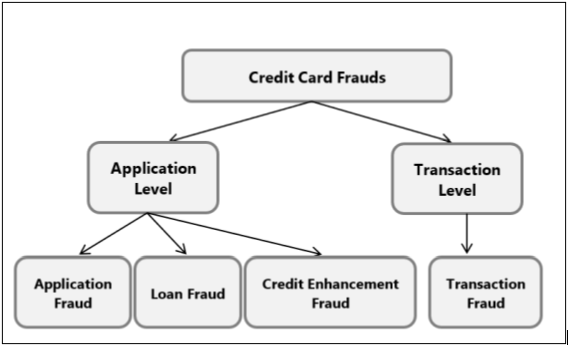Synchronization of AI and Deep Learning for Credit Card Fraud Detection
Keywords:
Deep Learning, AI, Fraud Detection, Credit CardAbstract
At current scenario, more and more businesses are moving toward accepting credit card payments online, there is a growing demand for an efficient fraud detection solution that is able to send alerts in real time that can be acted upon. The banking and financial sector of a country is one of the most significant contributors to the growth and development of the economy of that country. In recent years, consumers have become increasingly reliant on credit and debit cards for all of their purchasing needs, whether they prefer to do their shopping online or in-store. Because of this, the number of people using bank cards has skyrocketed. As a result, the number of monetary exchanges completed with plastic has increased significantly. Customers & other organisations are all being put in a precarious position as a result of fraudulent actors in this situation. Internet banking has emerged as a significant channel for conducting business deals as a result of the widespread availability of more recent technological advancements. There is a significant trust and safety issue caused by fake activities and fraudulent transactions. This is a problem because fake banking activities and fraudulent transactions can be committed by anyone. Additionally, the proliferation of sophisticated frauds like virus infections, scams, and fake websites cause enormous losses due to fraudulent activities. These frauds are just some of the ways that fraudulent activities can result in enormous losses. All of these cons are examples of more sophisticated forms of fraud. This research makes three important contributions to the fight against fraudulent activity involving the use of credit cards.
Downloads
References
Achituve I, Kraus S, Goldberger J, “Interpretable Online Banking Fraud Detection Based on Hierarchical Attention Mechanism”, In proceedings of 2019 IEEE 29th International Workshop on Machine Learning for Signal Processing (MLSP), pp.1-6, October 2019.
Bogaerts, B., Bontempi, G., Geurts, P., Harley, N., Lebichot, B., Lenaerts, T., & Louppe, G. (2021). Artificial Intelligence and Machine Learning.
Claessens J, Dem V, De Cock D, Preneel B, Vandewalle J, “On the security of today’s online electronic banking systems”, Computers & Security, vol.21, no.3, pp.253-65, June 2002.
Goodfellow, I., Bengio, Y., & Courville, A. (2016). Deep learning. MIT press.
Dembla, N., & Arya, M. K. (2019). Effect of Machine Learning in E- Commerce. Kaav International Journal of Economics, Commerce & Business Management, 6(1), 298-305.
Kingma, D. P., & Welling, M. (2019). An introduction to variational autoencoders. Foundations and Trends® in Machine Learning, 12(4), 307-392.
Lebichot, B., Le Borgne, Y. A., He-Guelton, L., Oblé, F., & Bontempi, G. (2020). Deep-learning domain adaptation techniques for credit cards fraud detection. In Recent Advances in Big Data and Deep Learning: Proceedings of the INNS Big Data and Deep Learning Conference INNSBDDL2019, held at Sestri Levante, Genova, Italy 16-18 April 2019 (pp. 78-88). Springer International Publishing.
Lebichot, B., & Saerens, M. (2020). An experimental study of graph-based semi-supervised classification with additional node information. Knowledge and Information Systems, 62(11), 4337-4371.
Taha A and Malebary S J, “An Intelligent Approach to Credit Card Fraud Detection Using an Optimized Light Gradient Boosting Machine”, IEEE Access, vol.8, pp.25579-87, February 2020.
Revathi P, “Digital Banking Challenges and Opportunities in India”, EPRA International Journal of Economic and Business Review, vol.7, no.12, pp.20-3, 2019.
Srividya, R., & V, L. (2018). Artificial Intelligence in Hospitals. National Journal of Arts, Commerce & Scientific Research Review, 6(1), 335-338.
Srivastava, A., Srivastava, P., & Chaudhary, A. (2022). DigitaL Fraud (1st ed., pp. 11-18). Kaav Publications. https://www.kaavpublications.org/cpabstracts/digital-fraud.
Sivakumar, N., Balasubramanian, R.: Fraud detection in credit card transactions: classification, risks and prevention techniques. International Journal of Computer Science and Information Technologies 6(2) (2015)
Wei W, Li J, Cao L, Ou Y, Chen J, “Effective detection of sophisticated online banking fraud on extremely imbalanced data”, World Wide Web, vol.16, no.4, pp.449-75, July 2013.
Wang, J.H., Liao, Y.L., Tsai, T.m., Hung, G.: Technology-based financial frauds in taiwan: issues and approaches. In: Systems, Man and Cybernetics, 2006. SMC’06. IEEE International Conference on. IEEE (2006)
https://cloud.google.com/blog/products/data-analytics/how-to-build-a-fraud-detection-solution

Downloads
Published
How to Cite
Issue
Section
License

This work is licensed under a Creative Commons Attribution-ShareAlike 4.0 International License.
All papers should be submitted electronically. All submitted manuscripts must be original work that is not under submission at another journal or under consideration for publication in another form, such as a monograph or chapter of a book. Authors of submitted papers are obligated not to submit their paper for publication elsewhere until an editorial decision is rendered on their submission. Further, authors of accepted papers are prohibited from publishing the results in other publications that appear before the paper is published in the Journal unless they receive approval for doing so from the Editor-In-Chief.
IJISAE open access articles are licensed under a Creative Commons Attribution-ShareAlike 4.0 International License. This license lets the audience to give appropriate credit, provide a link to the license, and indicate if changes were made and if they remix, transform, or build upon the material, they must distribute contributions under the same license as the original.





